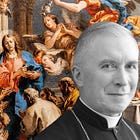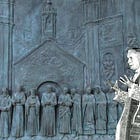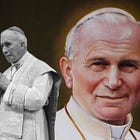'Medieval peasants didn't know the pope's name, why should we care?' +Lefebvre answers
Each enormity from the Vatican prompts the same responses: one is that caring about what happens in Rome is modern, and that 'medieval peasants wouldn't know the pope's name.' Lefebvre answers.
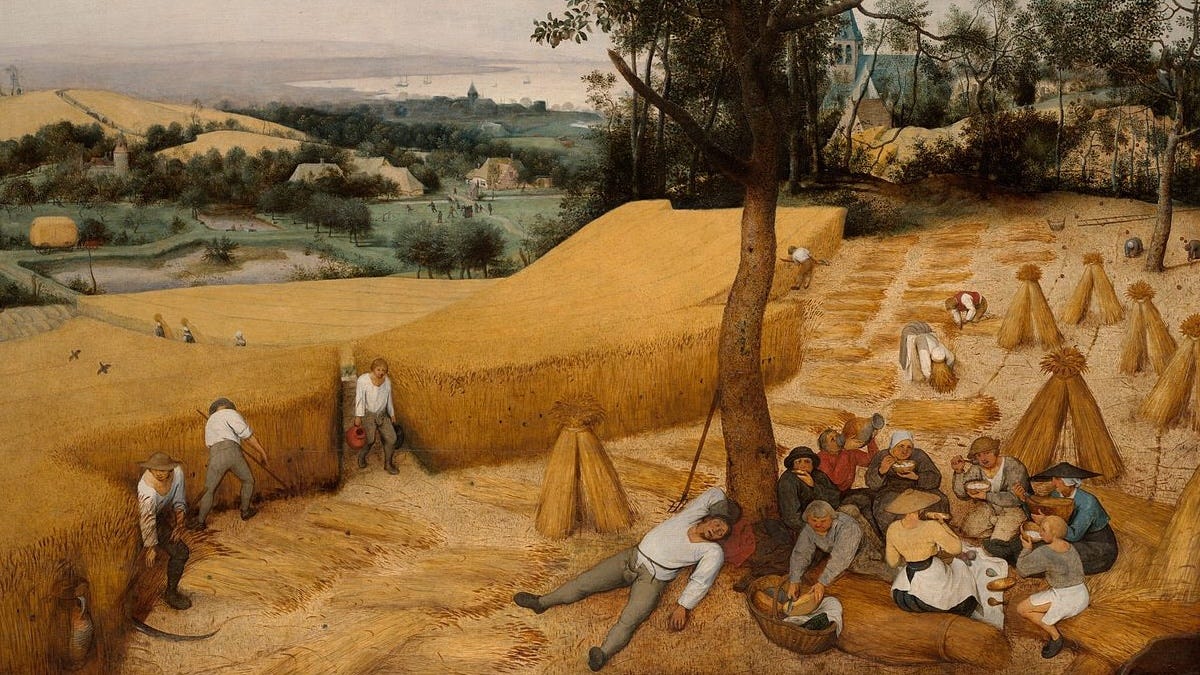
Each enormity from the Vatican prompts the same responses: one is that caring about what happens in Rome is modern, and that 'medieval peasants wouldn't know the pope's name.' Lefebvre answers.
Editors’ Notes
Each new enormity from the Vatican prompts the same, predictable responses/objection. One “classic” example is this:
Even being aware of what happens in Rome is a modern phenomenon, a result of an exaggerated understanding of the papacy, sometimes dubbed “hyper-papalism.”
By contrast some medieval peasants from Europe’s most Catholic period wouldn't even know the pope's name.1
Things were never perfect in Rome, but people were just not widely aware of it until now.
Therefore, Catholics shouldn’t care too much about the Vatican and the crisis in the Church. They should just get on with the basics of Christian life.
No doubt we should indeed get on with the basics of Christian life. This is completely true.
Accepting this, Archbishop Lefebvre answers the objection in a 1986 article from the Angelus, comprised from a few conferences given around that time.
What’s more, Lefebvre answered this response/objection specifically in reference to the idea that “all religions are a path to God,” as Francis claimed on 13 September 2024.
In brief, even if one thinks we should all pretend to be ignorant medieval peasants (which is not a little disrespectful to our forebears), and even if one is happy ignoring Vatican matters, many souls are being scandalised. One's opinion that they shouldn’t be scandalised is irrelevant, as is the (dubious) opinion that our medieval forebears would neither know nor care about such matters.
In the face of these scandals, not everyone can pretend to be a medieval peasant, and not everyone agrees that feigned ignorance can answer the problems.
Following this extract, I have appended an extract from another conference from the same time, about the importance of providing answers to the faithful, so that they (and indeed priests) can keep the faith.
As Archbishop Lefebvre said in that further conference:
“The faithful must not lose the faith. We are responsible for keeping the faith of the faithful, protecting it.”
Many are indeed losing the faith and leaving the Church because of the scandals, and others are not entering the Church because of them.
There can be an unhealthy interest in being up to date with Church matters, and one will not save one’s soul through this awareness; but one may sin through negligence by being unable to assist our neighbour with adequate answers when he is troubled by such matters.
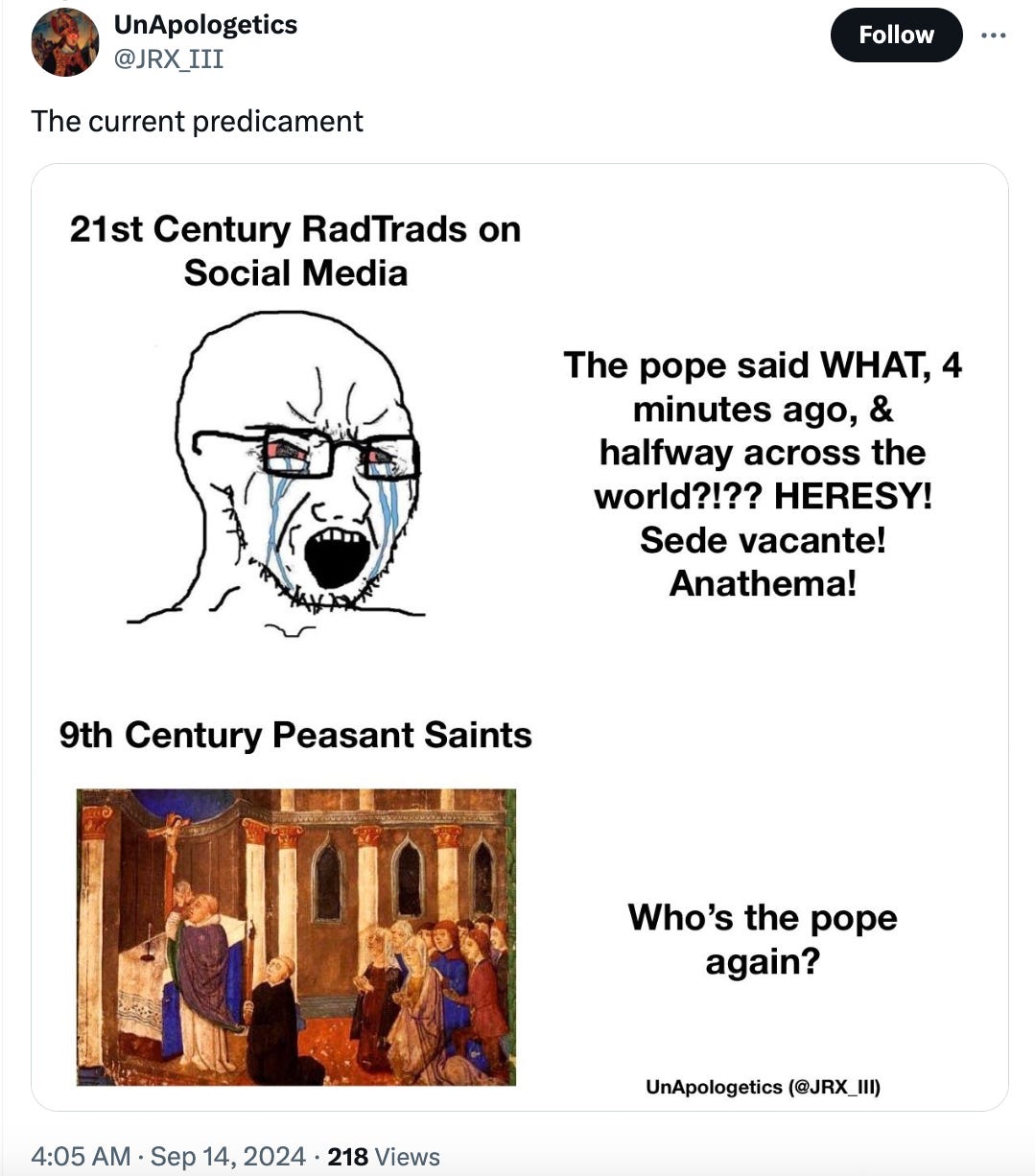
The Archbishop Speaks
Archbishop Marcel Lefebvre
From The Angelus, July 1986, Vol. IX, n. 7
Now some priests (even some priests in the Society) say that we Catholics need not worry about what is happening in the Vatican; we have the true sacraments, the true Mass, the true doctrine, so why worry about whether the Pope is a heretic or an impostor or whatever; it is of no importance to us.
But I think that is not true.
If any man is important in the Church, it is the Pope. He is the centre of the Church and has a great influence on all Catholics by his attitudes, his words and his acts. All men read in the newspapers the Pope's words and on television they see his travels.
And so, slowly, slowly, many Catholics are losing the Catholic Faith by the scandal of the Pope's partaking in false religions. This ecumenism is a scandal in the true sense of the word, an encouragement to sin. Catholics are losing faith in the Catholic Church. They think all religions are good because the Pope in this way befriends men of all religions.
When the scandal comes from so high in the Church, from the man in the chair of Peter and from almost all the bishops, then poor Catholics who are thrown back on their own resources and who do not know their Faith well enough to keep it despite all, or who do not have priests by their side to help them to keep the Faith, these Catholics are completely at a loss what to do.
They are no longer practicing their Faith, or they give up praying, or they are losing the Faith altogether and are joining some sect or other. I ask, what people are keeping the Faith? Where are they? Where are they? And I ask even the Traditionalists!
Opinions and tastes, rather than divine faith
For I think that many Traditional Catholics enjoy the traditions; they like the old Mass, they like the old sacraments, they like the old teaching of the Church, but they do not really believe in Jesus Christ as the one and only Saviour, God and Creator.
That is the bad influence of all the modern errors coming through television and the media - they are so bad, so pagan, so opposed to Jesus Christ and the Catholic Faith that few people remain true Catholics wholly faithful to Jesus Christ.
That is why we can't be indifferent to these scandalous events in Rome, we must judge them in the light of our Faith and help Catholics, traditional Catholics, to see that this bad example of the Pope is a great scandal, very dangerous for their souls.
So much for the idea of it being a virtue to be ignorant of the goings-on in Rome.
Here is the next extract:
Spiritual Conference
Archbishop Marcel Lefebvre
15 April 1986 - Available in full here
… Then this problem arises.
First problem: communicatio in sacris.
Second problem: the question of heresy.
Third problem: is the pope still pope when he is heretical?
[Having set out the problems and reasons for the question earlier in the conference, he now gives his opinions.]
I do not know, I am not making a decision! But you can ask yourselves the question. I think that any sensible man must ask himself the question. I do not know.
So now, is it urgent to talk about it?…
We may not talk about it, of course… We can talk about it among ourselves, privately, in our offices, in our private conversations, among seminarians, among priests, and all that…
Should we talk about it to the faithful? Many say: ‘No, do not talk to the faithful. They will be scandalised. It will be terrible, it will go far…’
Well. I told the priests, in Paris, when I gathered them, and then to you, I had already told you, I said: ‘I think that, little by little, we must still enlighten the faithful a little…’
I do not say that it should be done brutally, and throw this to the faithful to frighten them… No. But I still think that it is precisely a matter of faith.
The faithful must not lose the faith. We are responsible for keeping the faith of the faithful, protecting it. They will lose the faith… even our traditionalists.
Even our traditionalists will no longer have faith in Our Lord Jesus Christ. For this faith is lost! It is lost in the priests, it is lost in the bishops.
Apostasy from Christ and the importance of the faith
We no longer believe in the power of Our Lord Jesus Christ. We no longer believe in his divinity.
It was Cardinal Ratzinger himself who said it. He stated in his report:
‘Europe no longer believes in the divinity of Our Lord Jesus Christ, and particularly the European clergy no longer believes...’
Well, that's serious, it's the gravest thing one can say! They no longer believe in the supernatural virtue of Our Lord and that Our Lord is truly the means to save souls. So they seek only human means. Hence the theology of liberation. Hence all the revolutionary principles.
We no longer seek justice through virtue, through the grace of Our Lord Jesus Christ, through the conversion of souls, through the transformation of souls, the Christianization of souls: quicumque baptizati estis, Christum induistis, to each of those who were baptised: you have put on Christ.
That is Christian civilization, that is the transformation of souls, that is the true revolution that must take place in souls for Christian civilization. And not the revolution from the ground up, with weapons if necessary, against tyrants: that’s playing with fire! That’s inciting hatred among people.
So, this is the situation in which we find ourselves and we must always come back to this: let us have faith, let us revive our faith, because it is due to the loss of faith that the Council was what it was. Because the bishops no longer have faith, and the priests no longer have faith. That is why they abandoned the priesthood, that is why they sought to be worker-priests.
They sought to do anything: congresses and congresses, meetings, assemblies, Synods, and all that... supposedly for faith... But it is the grace of the Good Lord that is needed, it is the grace of Our Lord Jesus Christ, He is the one who will save, He is All-Powerful. He is God. He came expressly for this, to save us. He is the one who must save, it is not us, we are only instruments.
HELP KEEP THE WM REVIEW ONLINE!
As we expand The WM Review we would like to keep providing free articles for everyone.
Our work takes a lot of time and effort to produce. If you have benefitted from it please do consider supporting us financially.
A subscription from you helps ensure that we can keep writing and sharing free material for all. Plus, you will get access to our exclusive members-only material.
(We make our members-only material freely available to clergy, priests and seminarians upon request. Please subscribe and reply to the email if this applies to you.)
Subscribe now to make sure you always receive our material. Thank you!
Further Reading
Follow on Twitter and Telegram:
This idea is popular in some circles – particularly in conversations conducted in the pub.
For the record, there are various reasons to doubt this claim. Of course, the name of a new pope and news of his acts may have taken longer to reach than it does today, and have been limited to his more important acts – especially in more remote hamlets.
But in this objection, the idealised peasant, ignorant of the most important of Roman activity, is asserted as something of a rule rather than an exception.
Anyone wanting to assert otherwise as the basis of a further argument should provide evidence for it.



